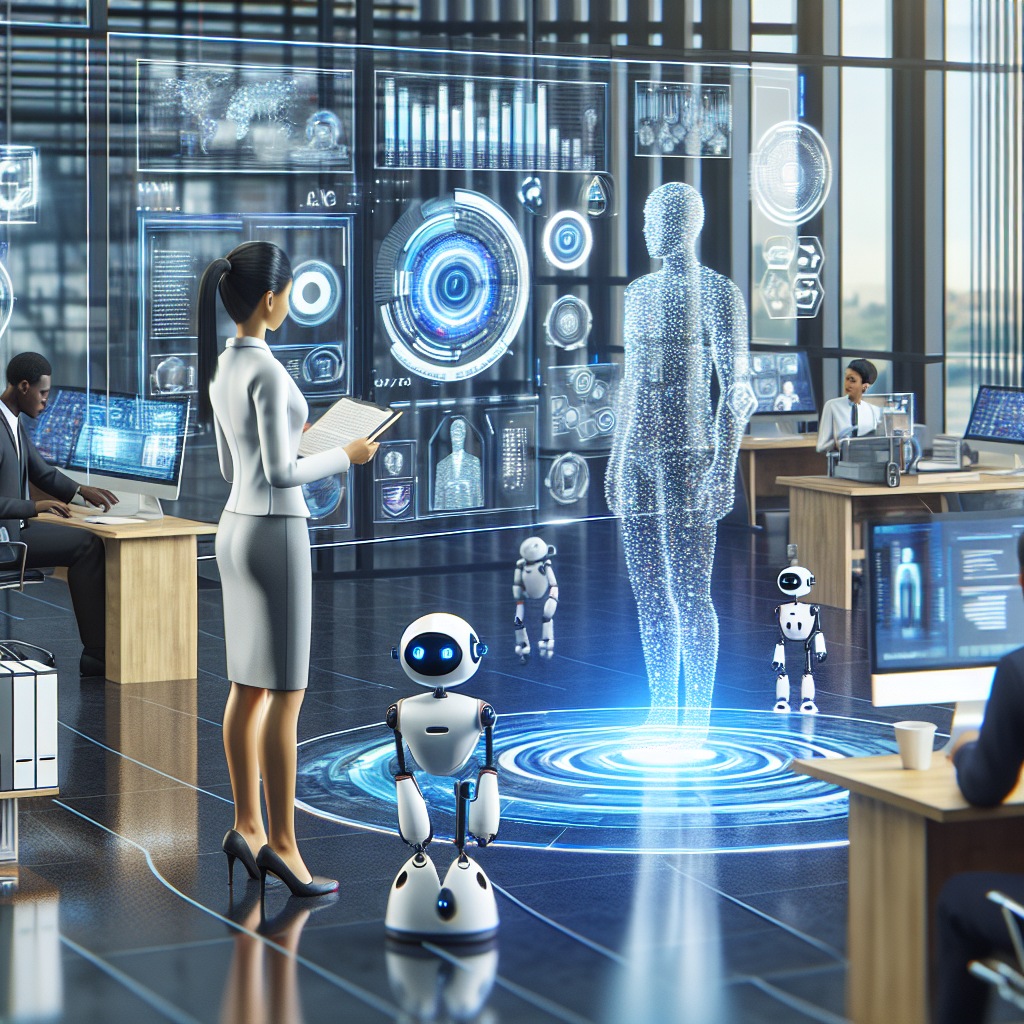Artificial Intelligence (AI) is revolutionizing the way government agencies operate and deliver services to the public. From automating routine tasks to predicting outcomes, AI is transforming the government workforce and job roles. In this article, we will explore the impact of AI on government workforce and job roles, and address common questions and concerns about this transformation.
Impact of AI on Government Workforce
1. Automation of Routine Tasks: One of the key benefits of AI in the government sector is the automation of routine tasks. AI-powered technologies can handle repetitive tasks such as data entry, document processing, and customer service inquiries, freeing up government employees to focus on more complex and strategic work.
2. Improved Decision Making: AI can analyze vast amounts of data quickly and accurately, enabling government agencies to make better-informed decisions. For example, AI algorithms can identify patterns in data to help predict trends, detect fraud, or optimize resource allocation.
3. Enhanced Efficiency and Productivity: By automating routine tasks and streamlining processes, AI can help government agencies operate more efficiently and increase productivity. This can lead to cost savings and improved service delivery to citizens.
4. Personalized Services: AI technologies such as chatbots and virtual assistants can provide personalized services to citizens, enhancing their overall experience with government agencies. These tools can answer questions, provide information, and assist with transactions in a timely and efficient manner.
5. Upskilling and Reskilling Opportunities: As AI automates routine tasks, government employees have the opportunity to upskill or reskill to take on more strategic roles that require human judgment and creativity. This can lead to a more skilled and adaptable workforce.
Job Roles Impacted by AI in Government
1. Data Analysts: AI technologies can assist data analysts in processing and analyzing large datasets to extract valuable insights. Data analysts can focus on interpreting the results and making recommendations based on the data, rather than spending time on manual data entry and processing.
2. Customer Service Representatives: AI-powered chatbots and virtual assistants can handle customer inquiries and provide support, freeing up customer service representatives to handle more complex issues that require human intervention. Customer service representatives can focus on delivering high-quality service to citizens.
3. Policy Analysts: AI can help policy analysts analyze policy options, simulate the impact of different scenarios, and predict outcomes based on data. Policy analysts can use AI-generated insights to inform policy decisions and develop evidence-based recommendations.
4. Administrative Assistants: AI technologies can automate administrative tasks such as scheduling appointments, managing calendars, and organizing documents. Administrative assistants can focus on more strategic tasks that require human judgment and communication skills.
5. IT Professionals: AI can assist IT professionals in monitoring and managing IT systems, detecting cybersecurity threats, and troubleshooting technical issues. IT professionals can focus on implementing AI technologies, developing AI algorithms, and enhancing cybersecurity measures.
FAQs about the Impact of AI on Government Workforce
Q: Will AI replace government employees?
A: AI is not meant to replace government employees but to augment their capabilities and improve efficiency. While some routine tasks may be automated, government employees can upskill or reskill to take on more strategic roles that require human judgment and creativity.
Q: How can government agencies ensure the ethical use of AI?
A: Government agencies can establish ethical guidelines and regulations for the use of AI, such as ensuring transparency, accountability, and fairness in AI systems. Agencies can also conduct regular audits and assessments of AI systems to ensure compliance with ethical standards.
Q: What are the potential risks of AI in government?
A: Potential risks of AI in government include bias in AI algorithms, privacy concerns, cybersecurity threats, and job displacement. Government agencies must address these risks through careful planning, training, and oversight of AI technologies.
Q: How can government employees prepare for the impact of AI?
A: Government employees can prepare for the impact of AI by upskilling or reskilling to acquire new skills that are in demand in the digital age, such as data analysis, cybersecurity, and AI development. Employees can also stay informed about AI trends and developments in their field.
Q: How can AI improve government service delivery?
A: AI can improve government service delivery by automating routine tasks, enhancing decision-making, providing personalized services to citizens, and increasing efficiency and productivity. AI technologies can help government agencies deliver high-quality services to citizens in a timely and cost-effective manner.
In conclusion, AI is transforming the government workforce and job roles by automating routine tasks, improving decision-making, enhancing efficiency and productivity, and providing personalized services to citizens. While AI presents opportunities for government employees to upskill and adapt to new roles, it also raises ethical, privacy, and job displacement concerns that must be addressed. By understanding the impact of AI on government workforce and job roles, government agencies can harness the power of AI to deliver better services to the public while ensuring the well-being of their employees and citizens.

